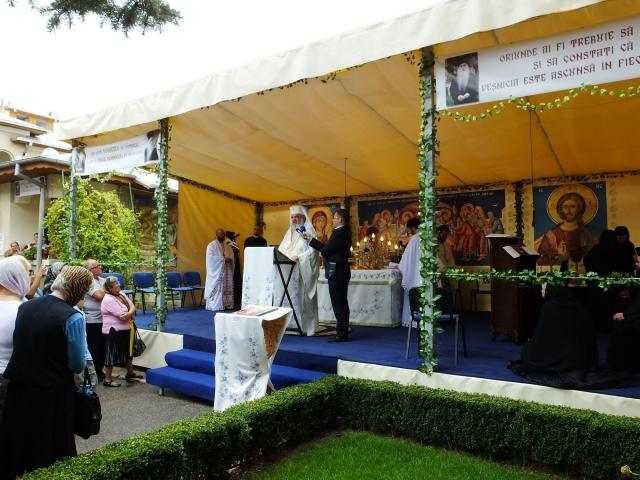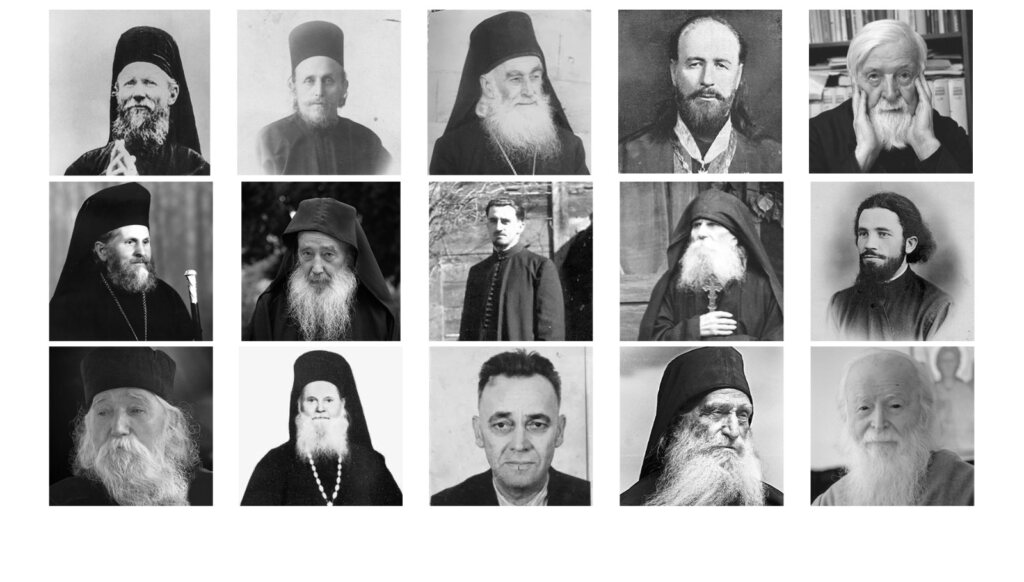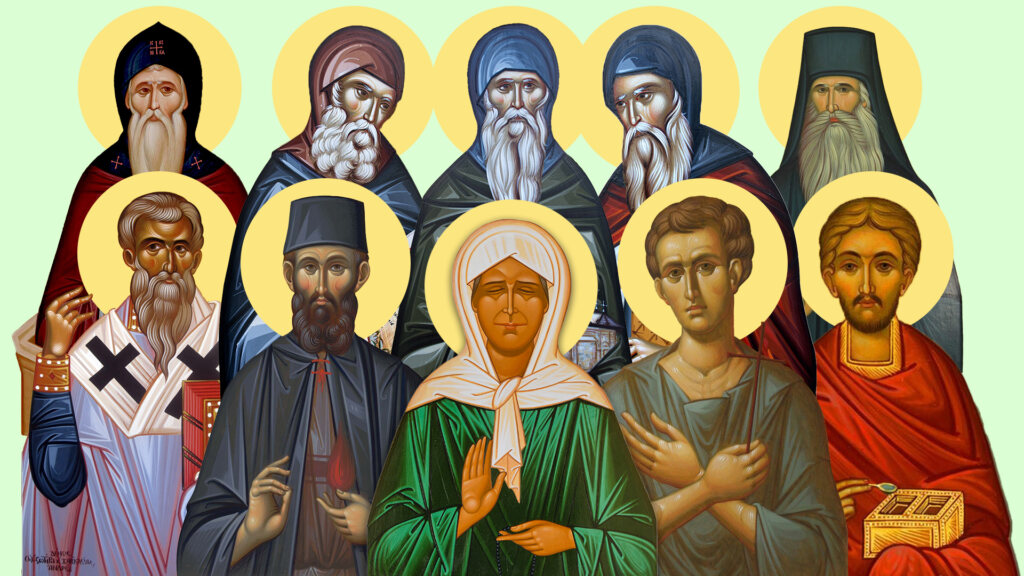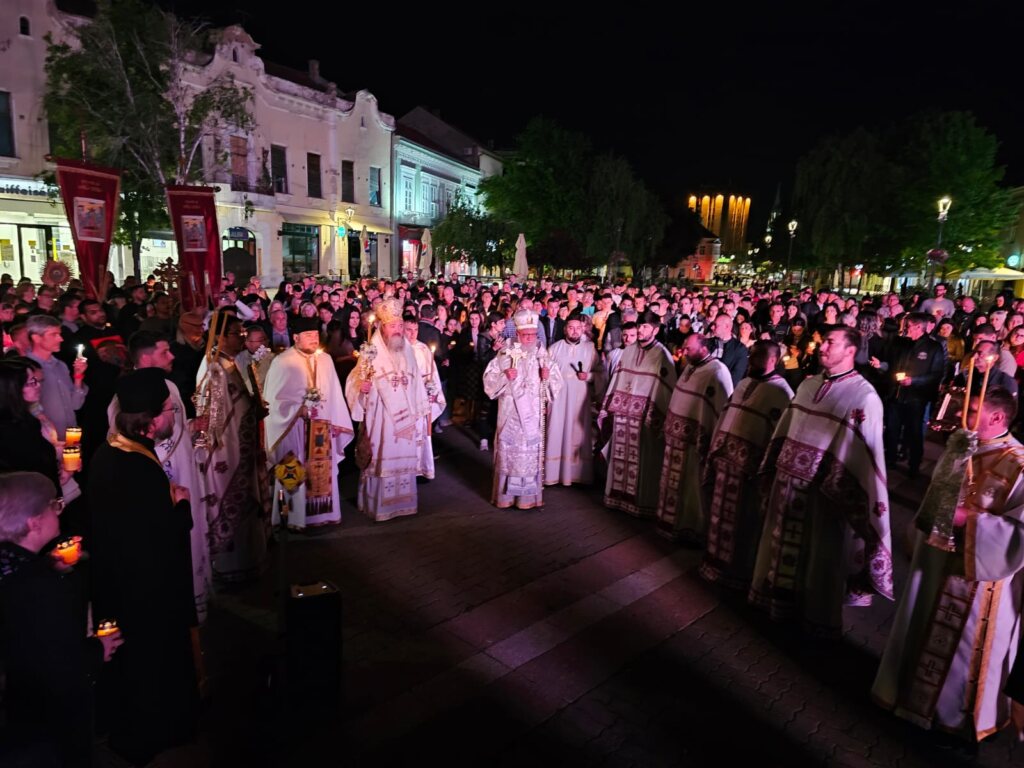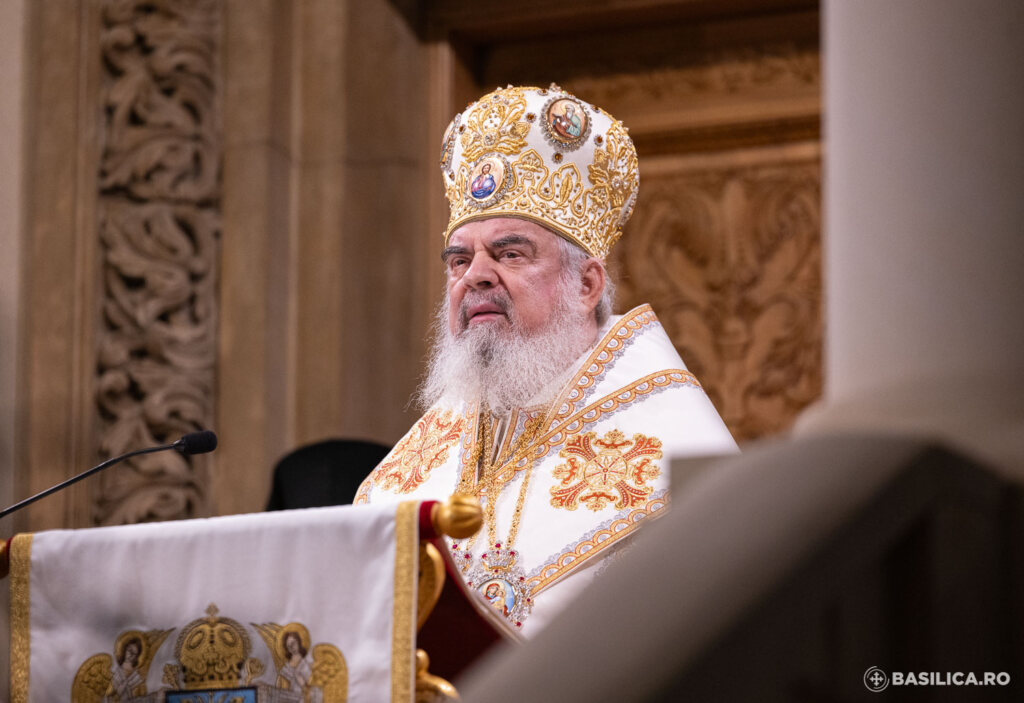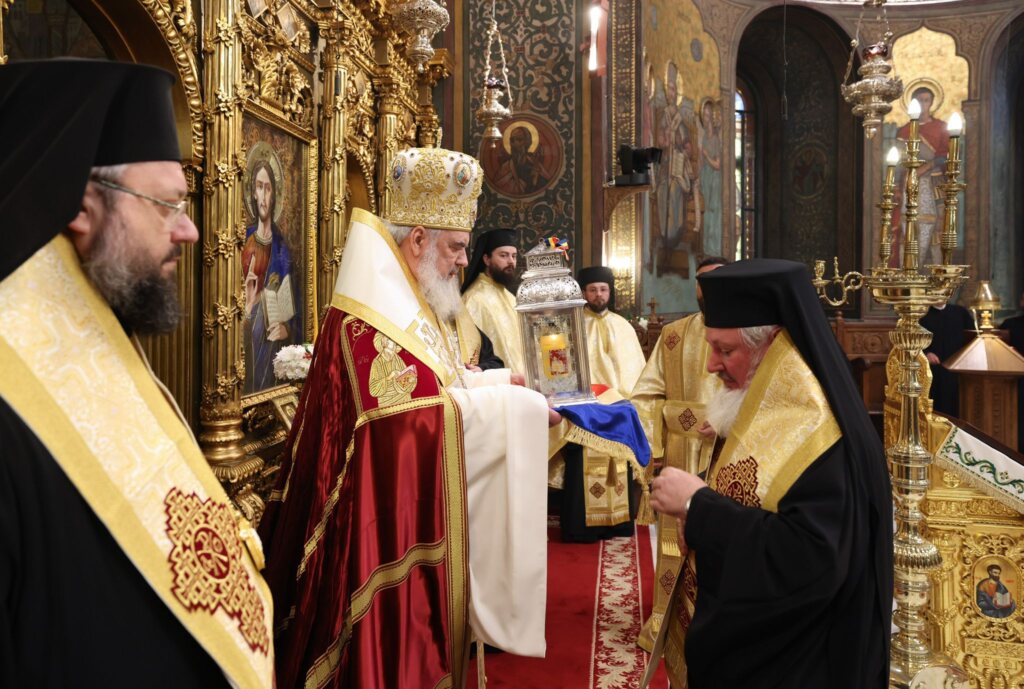On 24 August 2014, the 11th Sunday after Pentecost, the spiritual joy of the faithful present at “Saint Mary-Techirghiol”, patriarchal stavropighia (a monastery from a different eparchy subordinated to the Patriarchate seated in Bucharest), was increased by the presence of His Beatitude Daniel, Patriarchate of Romania.
The Church scheduled for this Sunday the text of Matthew 18:23-35, presenting the pericope of the merciless debtor: “Therefore, the kingdom of heaven is like a king who wanted to settle accounts with his servants. As he began the settlement, a man who owed him ten thousand bags of gold was brought to him. Since he was not able to pay, the master ordered that he and his wife and his children and all that he had be sold to repay the debt. “At this the servant fell on his knees before him. ‘Be patient with me,’ he begged, ‘and I will pay back everything.’ The servant’s master took pity on him, cancelled the debt and let him go. But when that servant went out, he found one of his fellow servants who owed him a hundred silver coins. He grabbed him and began to choke him. ‘Pay back what you owe me!’ he demanded. His fellow servant fell to his knees and begged him, ‘Be patient with me, and I will pay it back. But he refused. Instead, he went off and had the man thrown into prison until he could pay the debt. When the other servants saw what had happened, they were outraged and went and told their master everything that had happened. Then the master called the servant in. ‘You wicked servant,’ he said, ‘I cancelled all that debt of yours because you begged me to. Shouldn’t you have had mercy on your fellow servant just as I had on you?’ In anger his master handed him over to the jailers to be tortured, until he should pay back all he owed. This is how my heavenly Father will treat each of you unless you forgive your brother or sister from your heart.”
Today’s Gospel is a Gospel of forgiveness, as well as of justice
The Primate of the Romanian Orthodox Church explained in the sermon delivered the meaning of the Evangelical pericope read at the Divine Liturgy, showing that: “Today’s Gospel is a Gospel of forgiveness, as well as a Gospel of justice, it is a Gospel of mercy, as well as a Gospel of making responsible the people who avail of God’s mercy, who block it, who do not show it to their fellow beings through the forgiveness they should show them”.
While referring to the example of the merciless debtor, His Beatitude underlined the fact that the Master is merciful and generous, but as soon as He sees that His merciful love is despised, He becomes just, improver, and punisher in order to improve.
Man is called to eternal love for God and merciful love for the fellow beings
His Beatitude Patriarch Daniel emphasised the fact that Christ, our Lord, does not want His mercy to be stopped, but the same as we, the humans, receive merciful love from Christ, our Saviour, so we are urged to show, in our turn, merciful love, so that God’s merciful love should be transmitted from the man forgiven to another man who needs forgiveness.
“Today’s Gospel does not refer only to pecuniary debts, but to the very value of our life on the earth, because man was created in the image of the immortal God, has immortal soul and he was created in the image of the Most Holy Trinity as perfect eternal love; man is called to eternal love for God and to merciful love for his fellow beings. This is our big duty, and God forgives our big debts towards Him, namely the sins of wasting the gifts of life and of forgetting about God, the Spring of Life, while very often we are the severe judges of our fellow beings and justify our own mistakes and forgive any mistake of ours, but we do not forgive our fellow beings. Having seen this attitude, Jesus Christ, our Saviour, punished the great debtor who did not forgive, in his turn, a smaller debtor who owned him 100 silver coins. Why did He punish him if He was merciful? It is because He does not want His merciful love to be stopped, but showing merciful love to the people, they are urged to show merciful love, in their turn, so that God’s merciful love should be transmitted from a man forgiven to another man who needs forgiveness. Thus, it is an effect of the merciful love which should not be encouragement to evil, but urge to change for the better. If it is understood as presence of God’s love in us, merciful love should warm our heart, enlighten our mind, and strengthen our will, so that we should also be merciful to our fellow beings, just as God is merciful to us”, His Beatitude said.
Through forgiveness we change the hell of sins into the joy of heaven as experience of the presence of the merciful love of God in our soul
The Patriarch of the Romanian Orthodox Church showed, in his speech, what the purpose of forgiveness is: “When we forgive our fellow beings we change the relationships among humans. Unless we forgive, evil increases; if we only revenge ourselves and answer with evil to evil, we increase the evil in the world; unless we answer with evil to evil we stop evil, violence, hate, division through forgiveness and bring a new state to the soul and a new behaviour of the human. This is how we change the hell of sins into the joy of heaven as experience of the presence of the merciful love of God in our soul. Evil grows because the people cannot forgive; wherever the humans forgive one another evil is stopped. We see this fact in the family, society and among the peoples of the world. All wars are result of the selfish passions, of the wish to rule over others, or to take revenge, which facts increase evil in the world”.
Forgiveness from the bottom of one’s heart involves merciful love
The Primate of the Romanian Orthodox Church has shown that it is very important to forgive not formally, but from the bottom of one’s heart, as Christ urges us: “The forgiveness from the bottom of one’s heart which Jesus Christ, our Saviour urges, orders, is not easy to do. There are people who suffered a lot because of their fellow beings, who were robbed, beaten, injured in many ways, so that it is not easy for them to forgive from the bottom of your heart after the sufferance caused by somebody else. In general, people forgive formally and say I forgive, but I do not forget, or the Gospel says to forgive from the bottom of one’s heart. Forgiveness from the bottom of one’s heart brings about merciful love which does not remember evil”, His Beatitude said.
The human’s heart can be changed, through prayer, through the gift of God in the human’s heart, from a revengeful heart into a forgiving one
“We see this merciful forgiving love at God’s saints, we certainly see it in the case of the Saviour, as well as in the case of Saint Archdeacon Steven, His first martyr, who was praying: God, forgive them, do not mind their sin, while he was being stoned by those who hated him. We also see this merciful forgiving love in the case of some other martyrs who, before dying, forgave those who were killing them because they knew that the spirit of evil was working in them inciting them to pagan hate, to torture the Christians in order to make them give up Christ. We have this history of the martyrs, of the saints, which shows us that through much praying, through the gift of God in the human’s soul, the man’s heart can be changed from a revengeful heart into a forgiving one. In today’s Gospel we have forgiveness or mercy on one hand, and justice or people’s responsibility on the other hand, which do not use the forgiveness received from God as a reason to forgive their fellow beings too. It is a Gospel of the renewal of the life, of changing the relationships among people, of improving the behaviour towards our fellow beings. Unless we are reconciled with all people we cannot communicate with the Body and Blood of the Lord just because we do not have the merciful love of Jesus Christ in our soul”, His Beatitude also said.
His Beatitude Patriarch Daniel underlined the need to forgive those who made mistakes in order to receive the merciful love of Christ, our Saviour: “We are urged to forgive our debtors, especially during the fasting periods when we unite prayer with fasting, repentance with mercy, to ask for forgiveness within the Sacrament of confession and to communicate with the Body and Blood of Christ in order to rid of sins, as well as to receive His merciful love, because our love is very unstable, superficial and very often artificial. It is more diplomatic than spiritual, so that we need confession, much praying, as well as the communion with Christ who gives us power through the power of His merciful forgiving love”.
To end with, the Patriarch of Romania gave the Monastery of “Saint Mary-Techirghiol” an icon of the Brancovean Saints Martyrs and several books published by the publishing houses of the Romanian Patriarchate.
